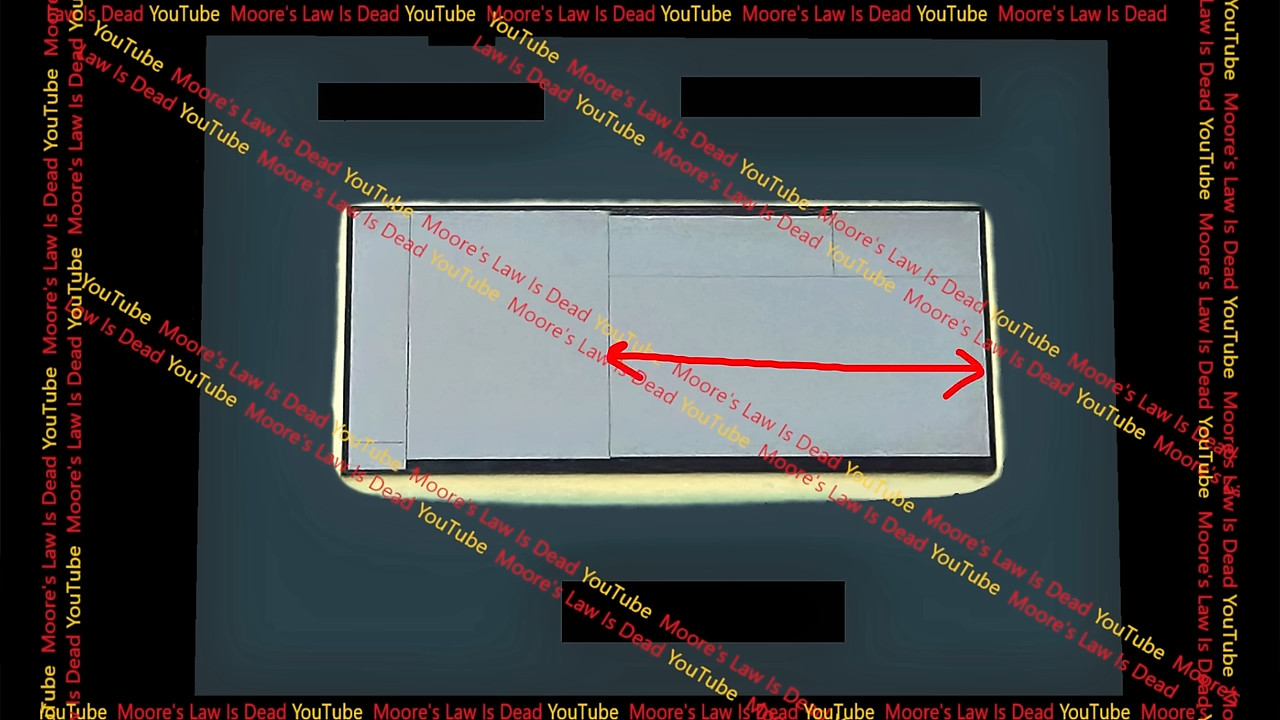Intel Arrow Lake CPUs might not arrive until 2025 – and that could be great news for AMD
We’ve also caught a glimpse of an Arrow Lake laptop chip in a photo

Sign up for breaking news, reviews, opinion, top tech deals, and more.
You are now subscribed
Your newsletter sign-up was successful
Intel’s Arrow Lake processors have been spotted with a photo of a laptop chip being shared by a well-known leaker on YouTube – but the other prospect floated here is that the desktop CPUs might not arrive this year (at least in any quantity, anyway).
YouTuber Moore’s Law is Dead (MLID) has chewed over a number of thoughts relating to Intel’s next-gen CPUs which have remained on track for a launch this year as far as we’ve been aware previously (and Intel has insisted this is the case).
However, MLID now tells us that the schedule for Arrow Lake is to go through qualification in October 2024, and typically, a launch won’t happen until one to three months after this.
So, that means – add salt as ever – that Intel might only just get Arrow Lake desktop silicon out right at the end of the year, perhaps in December. However, because there is so much riding on this for Intel – we’ll come back to why that is in a moment – there’s a possibility that a November launch might be pulled off.
However, the YouTuber notes that this might be a so-called ‘paper launch’ where Arrow Lake desktop processors may be out there, but in very small numbers – selling out quickly, in other words. MLID raises the prospect that there may not be any real volume of Arrow Lake CPUs on shelves until 2025.
The mentioned photo of an Arrow Lake laptop chip (see below) shows an ‘H’ series processor – one of the high-end models – featuring a large CPU tile (with the red arrow drawn on it), and a smaller graphics tile (on the far left).

That means this chip should offer a solid step up in performance for the processor, with less emphasis on the integrated graphics – but the latter makes some sense in terms of this being a top-end chip that’ll likely be paired with a discrete GPU in more expensive notebooks or gaming laptops.
Sign up for breaking news, reviews, opinion, top tech deals, and more.
Looking at the size of the processor die here relative to AMD’s Zen 5, MLID questions whether Intel will achieve a much better level of performance than Team Red’s next-gen chips.
The clues here appear to suggest not, because size-wise there isn’t much in it, and even though Intel is using a more advanced process with Arrow Lake, it’s not that much more of a step forward compared to AMD’s process.
Analysis: Timing is crucial
Those are worrying rumblings on the performance front, but previously, MLID has aired some rumors suggesting Arrow Lake will offer some big gains over Intel’s current-gen chips. That could still happen, though, it’s just MLID views this as having to come from architectural improvements, rather than the process – and this is entirely possible. Intel could have made a major breakthrough with the design and architecture here.
Team Blue better have something up its sleeve, because as mentioned earlier, there’s a lot riding on Arrow Lake. Mainly because Zen 5 desktop is expected to arrive certainly in Q4 2024 (previously Q3 has been hinted at), and if Arrow Lake slides to 2025 – for any proper level of availability – Intel is going to be fighting a difficult battle.
Remember that AMD’s Zen 5 CPUs should be cheaper, more than likely, plus they won’t require a new socket and full platform (motherboard) upgrade. So, if Ryzen 8000 (or Ryzen 9000) desktop processors hit the shelves considerably before Arrow Lake, and have these other advantages on top, well, it’s going to be a bad look for Intel.
If these rumors pan out, mind – it’s possible Arrow Lake isn’t lagging behind its intended launch schedule, and MLID has something wrong here. Time will tell, but if Arrow Lake is late to the next-gen CPU party, it will surely have to offer some pretty enticing performance advantages over Zen 5 in order to establish itself.
You might also like
Darren is a freelancer writing news and features for TechRadar (and occasionally T3) across a broad range of computing topics including CPUs, GPUs, various other hardware, VPNs, antivirus and more. He has written about tech for the best part of three decades, and writes books in his spare time (his debut novel - 'I Know What You Did Last Supper' - was published by Hachette UK in 2013).
